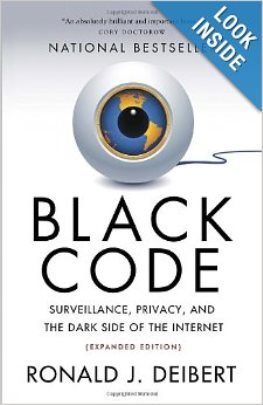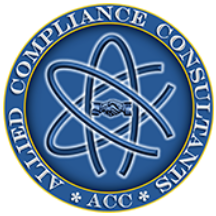Book Details
Paperback: 336 pages
Publisher: Signal
Language: English
ISBN-10: 0771025351
ISBN-13: 978-0771025358
Product Dimensions: 7.9 x 5.1 x 1.1 inches
Book Description
Cyberspace is all around us. We depend on it for everything we do. We have reengineered our business, governance, and social relations around a planetary network unlike any before it. But there are dangers looming, and malign forces are threatening to transform this extraordinary domain.
In Black Code, Ronald J. Deibert, a leading expert on digital technology, security, and human rights, lifts the lid on cyberspace and shows what’s at stake for Internet users and citizens. As cyberspace develops in unprecedented ways, powerful agents are scrambling for control. Predatory cyber criminal gangs such as Koobface have made social media their stalking ground. The discovery of Stuxnet, a computer worm reportedly developed by Israel and the United States and aimed at Iran’s nuclear facilities, showed that state cyberwar is now a very real possibility. Governments and corporations are in collusion and are setting the rules of the road behind closed doors.
This is not the way it was supposed to be. The Internet’s original promise of a global commons of shared knowledge and communications is now under threat.
Drawing on the first-hand experiences of one of the most important protagonists in the battle – the Citizen Lab and its global network of frontline researchers, who have spent more than a decade cracking cyber espionage rings and uncovering attacks on citizens and NGOs worldwide – Black Code takes readers on a fascinating journey into the battle for cyberspace. Thought-provoking, compelling, and sometimes frightening, it is a wakeup call to citizens who have come to take the Internet for granted. Cyberspace is ours, it is what we make of it, Deibert argues, and we need to act now before it slips through our grasp.
About the Authors
Ronald J. Deibert
Ronald J. Deibert, OOnt (PhD, University of British Columbia) is professor of Political Science, and Director of the Canada Centre for Global Security Studies and the Citizen Lab at the Munk School of Global Affairs, University of Toronto. The Citizen Lab is an interdisciplinary research and development “hothouse” working at the intersection of the Internet, global security, and human rights. He is a co-founder and a principal investigator of the OpenNet Initiative and Information Warfare Monitor projects. Deibert was one of the founders and (former) VP of global policy and outreach for Psiphon.
Deibert has published numerous articles, chapters, and three books on issues related to technology, media, and world politics. He is the author of Black Code: Inside the Battle for Cyberspace, published in May 2013. He was one of the authors of the report Tracking GhostNet: Investigating a Cyber Espionage Network which documented an alleged cyber-espionage network affecting over 1,200 computers in 103 countries, and the Shadows in the Cloud: Investigating Cyber Espionage 2.0 report, which analyzed a cloud-based espionage network.
He has been a consultant and advisor to governments, international organizations, and civil society on issues relating to Internet censorship, surveillance and information warfare. He presently serves on the editorial board of the journals International Political Sociology, Security Dialogue, Explorations in Media Ecology, Review of Policy Research, and Astropolitics.
Deibert is on the advisory board of Accessnow.org, Privacy International, and is a member of the board of directors of Lake Ontario Waterkeeper.
Deibert was awarded the University of Toronto Outstanding Teaching Award (2002), the Northrop Frye Distinguished Teaching and Research Award (2002), and the Carolyn Tuohy Award for Public Policy (2010). He was a Ford Foundation research scholar of information and communication technologies (2002-2004).
He was named among Esquire Magazine’s Best and Brightest List of 2007, and in 2010, he was listed among SC Magazine’s top “IT Security Luminaries.”
In 2013, he was made a Member of the Order of Ontario and awarded the Queen Elizabeth II Diamond Jubilee Medal, for being “among the first to recognize and take measures to mitigate growing threats to communications rights, openness and security worldwide.”





















